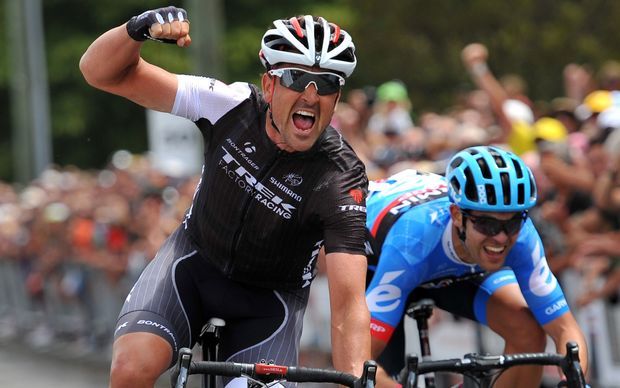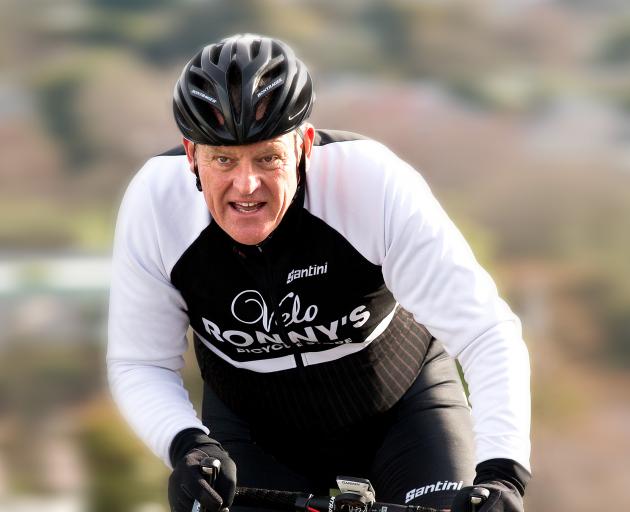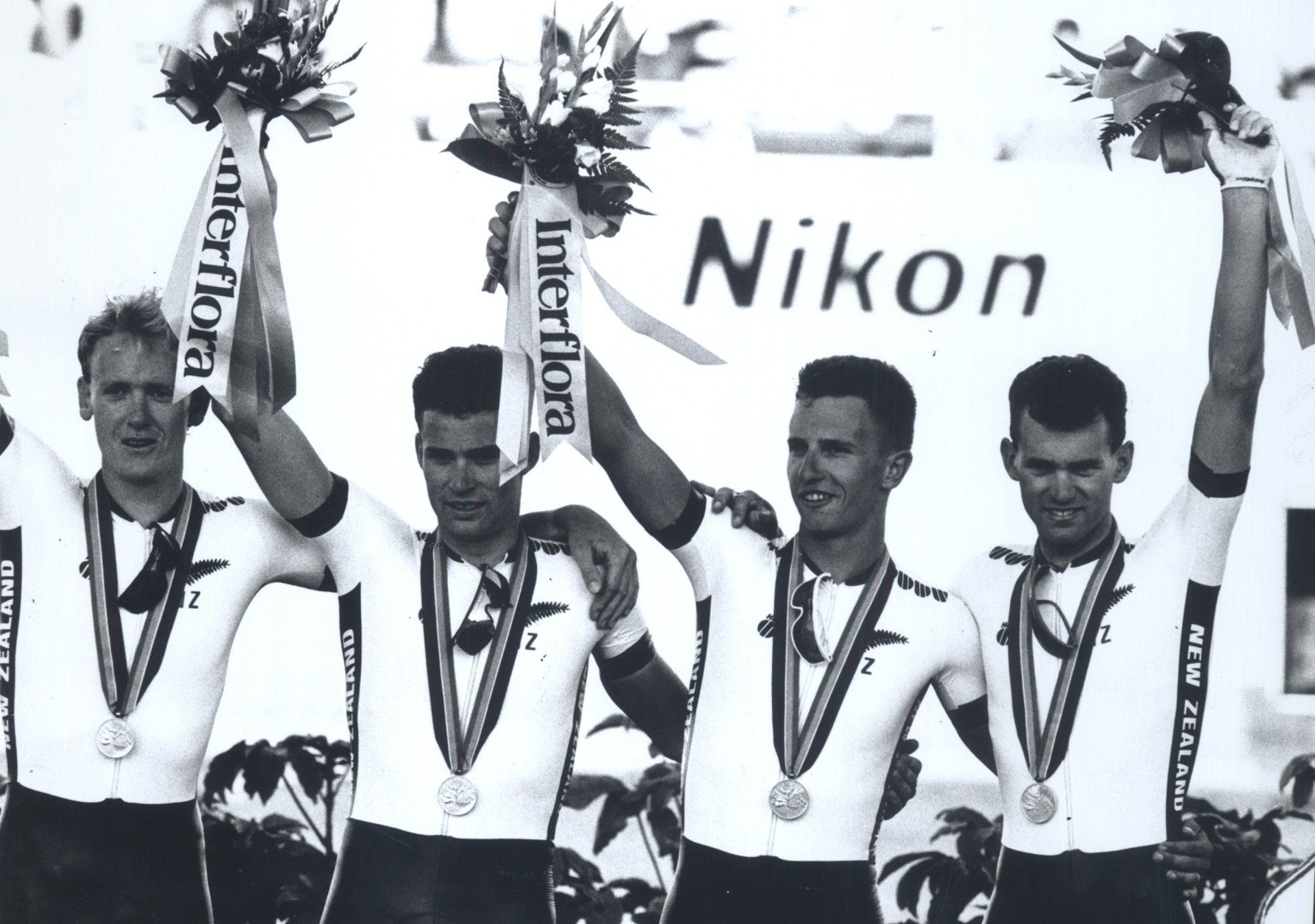Top Riders And Rising Stars
See Our Club’s Success Stories
CTC Riders - Past and Present
Canterbury Track Cycling Club has helped launch some stellar cycling careers in its 50 years. Read about their achievements and how they started out.
Hayden Roulston
— Olympic Silver Medalist
For a professional cyclist and Olympic silver medallist, Hayden’s first introduction to track racing as a 14-year-old, was less than stellar from memory.
“When I first rode Denton, I was very scared. I remember it being super steep! Coming from Ashburton and the pancake flat track at Tinwald, racing at Denton was a big deal,” he recalls.
Fast forward a few years and it would be Hayden that was the big deal, turning professional in 2002 with French team Cofidis. Three years later he moved to team Discovery Channel, making impressive rides before being interrupted by injury. His comeback saw him sign with Continental Pro team and completing some top ten finishes in the Tour of California.
In 2008, he represented his country at the 2008 Beijing Olympics. He won a silver medal in the 4000m individual pursuit and a bronze medal in the 4000m team pursuit race.
“I had a very fortunate career racing at the highest level and representing my country at cups and championships throughout the world,” Hayden says
Cycling Honours and Awards
During his esteemed professional career, Hayden earned many impressive achievements, including but not limited to:
Winning the silver medal in the Men's Road Race at the 2010 Commonwealth Games in India
Winning silver at the UCI Track World Championships in 2003 and silver in the points race at the 2006 Commonwealth Games in Melbourne
First placings in a number of road races including the Oceania Road Championships, National Road Championships, Tour de Wallonie, Tour of Wellington, Tour of Southland, Tour de Vineyards and Akaroa Le Race.
“My proudest moment would be actually signing professional. As a Kiwi in 2001, even getting to Europe was and still is difficult. Let alone winning and getting noticed when you’ve got 500 others wanting the same thing,” Hayden says
Your best cycling advice to a teen version of yourself today?
“Make sure you do all you can as a youngster to achieve your cycling goals, but at the same time make sure it is fun and you get breaks. The seasons seem relentless so look for rest periods and time away from your cycling, if you want to sustain it long term,” he says.
Craig Adair
— Commonwealth Medalist
From being told he was too young to compete in 1979 to winning gold three years later, Craig Adair became synonymous with comeback success in the gruelling world of track cycling.
At the 1982 Commonwealth Games in Brisbane, 18-year-old Adair became the toast of the nation after he won gold in the 1km time trial. “I got the gold in the kilo, fifth in the individual pursuit and fifth in the 16k scratch race” he recalls.
The following year at the 1983 World Track Champs in Switzerland, Craig overcame a puncture in the first lap to finish fourth in the time trials.
At the 1984 Los Angeles Olympics, aged 21 years, he came fifth in the 1km time trial, from a field of 25 and placed 13 of 14 in the 4000m team pursuit.
“I got a restart but I had to do it straight away and my spare wheel didn’t fit so we had to borrow another wheel from the Australian’s. Unfortunately, the gearing was lower and I only rode a 91.1 inch gear. So I did really well considering,” he says.
Medal Winning Manager
One of his proudest moments in cycling came in 2008 as the manager of the New Zealand Olympic track cycling team that won a silver with Hayden Roulston in the individual pursuit and bronze in the team pursuit with Sam Bewley, Roulston, Jesse Sergent and Marc Ryan.
“I got the gold in the kilo, fifth in the individual pursuit and fifth in the 16k scratch race” he recalls.
Advice to aspiring track cyclist Olympians?
“Keep going. What you put in, you get out. The more you do, the better you’ll do. Don’t retire too early from the sport. I retired at 21 which was way too young - I should have kept going,” Craig says. Today, Craig still rides three times a week and competes in local road cycling events for fun and fitness.
Nigel Donnelly
— Commonwealth and Olympic Cyclist
A gold medal win at the 1990 Commonwealth Games in Auckland is a highlight of this former Canterbury Track Cyclist’s many achievements throughout his sporting career.
Nigel first started track cycling while still a 14-year-old student at Burnside High School, training with the club at the Denton Park concrete outdoor velodrome, first constructed for the 1974 Commonwealth Games.
Young Nigel threw himself into training. Steadily improving and aiming to qualify for selection to NZ Commonwealth and Olympic teams.
This included the chance to meet other athletes from around the world, the camaraderie of belonging to a national team and travelling overseas to compete on the world stage. For Nigel this included competing at the 1988 Olympics in Seoul and the 1992 Olympics in Barcelona.
But it was the team pursuit event at the 1990 Commonwealth Games that eclipses all others. Nigel was part of the team that beat Australia to take out the gold medal.
“ The Australians had told us they were so good they were probably going to lap us in the final - so to take the win on home ground and be able to celebrate with NZ family and friends was the best feeling,” Nigel says.
Cycling Honours and Awards
Nigel first represented New Zealand at the 1986 World Junior Cycling Championships in Morocco.
He went on to compete for NZ in the men's 4000m team pursuit at the 1988 Olympics in Seoul, Korea where the team placed 14th. Also, the same event at the 1992 Olympics in Barcelona, Spain where the team placed 7th
He also competed in the 1990 World Track Champs in Maebashi, Japan and the 1991 World Track Champs in Stuttgart, Germany.
“The best advice I could give a young person today aiming to do likewise, is train hard but make it fun and be grateful for the opportunities that open up.”
What life skills did cycling teach you?
“Outside of the physical benefits, cycling has taught me about managing my time and prioritising short and long term goals throughout life. And the fundamentals, like you’ve got to put in the hard work to get the results you want. But you can do it,” Nigel says.



